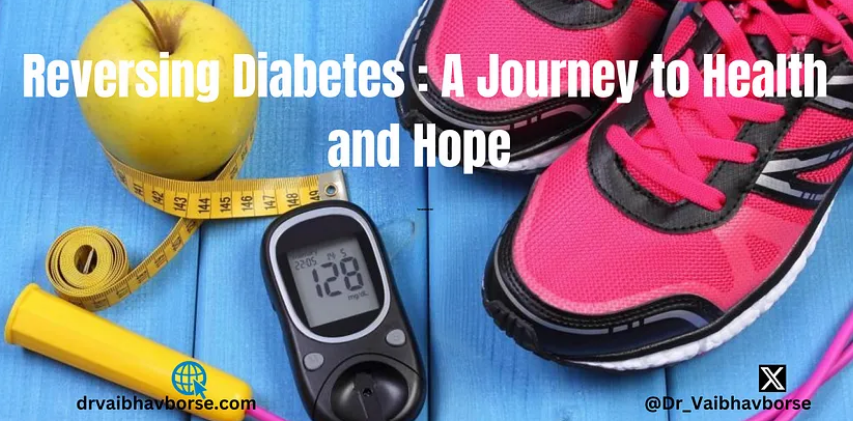Type 2 diabetes has traditionally been viewed as a lifelong condition requiring ongoing management. However, recent research and personal success stories reveal that type 2 diabetes can, in many cases, be reversed through targeted lifestyle changes. While reversal does not equate to a cure, it means achieving normal blood sugar levels without medication, as long as the lifestyle changes are maintained.
What Is Diabetes Reversal?
Diabetes reversal focuses on tackling the underlying causes of insulin resistance and blood sugar imbalances. For type 2 diabetes, these causes often include excess weight, poor dietary habits, and insufficient physical activity. By addressing these factors, individuals can enhance insulin sensitivity and restore blood sugar levels to a healthy range.
Scientific evidence, such as studies on low-calorie diets and bariatric surgery, shows that significant weight loss can lead to diabetes remission. These approaches work by reducing fat accumulation around critical organs like the liver and pancreas, improving their function.
Strategies to Reverse Diabetes
Adopt a Healthier Diet
A key element in reversing diabetes is embracing a nutritious, well-balanced diet. Low-carbohydrate and ketogenic diets have proven effective in stabilizing blood sugar by minimizing refined carbs and sugars while emphasizing healthy fats and proteins.
Another approach gaining popularity is intermittent fasting. Prolonged periods without eating encourage the body to utilize stored glucose and fat for energy, improving insulin sensitivity.
Stay Active
Physical activity is essential for reversing diabetes. Exercises such as walking, cycling, strength training, and yoga help the body use glucose more efficiently. Health authorities recommend at least 150 minutes of moderate exercise weekly.
Achieve and Maintain a Healthy Weight
Even a small amount of weight loss can greatly enhance blood sugar regulation. Reaching and sustaining a healthy weight enhances insulin sensitivity and reduces the risk of diabetes-related complications.
Reduce Stress and Improve Sleep
Chronic stress and poor sleep are often overlooked factors in diabetes management. Practices like mindfulness, meditation, and ensuring adequate rest can lower stress hormone levels, contributing to stable blood sugar.

Seek Professional Support and Monitor Progress
Regular blood sugar monitoring and consultation with healthcare professionals are critical. Tailored advice ensures that lifestyle changes align with individual needs and overall health.
Overcoming Challenges and Staying Motivated
Reversing diabetes demands commitment, consistency, and perseverance. Setbacks may occur, but the potential rewards — enhanced energy, reduced reliance on medication, and a lower risk of complications like heart disease — make the effort worthwhile.
In Conclusion :
The possibility of reversing diabetes offers hope to millions. Individuals can regain control of their health with informed lifestyle choices and professional guidance. While each person’s journey is unique, many can achieve a diabetes-free life, proving that a diagnosis doesn’t define their future.
